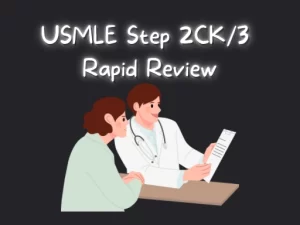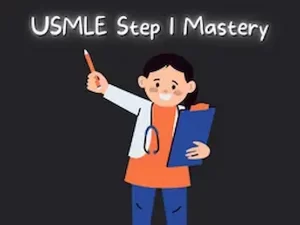If you’re an Indian medical graduate (IMG) dreaming of pursuing your medical career in the United States, understanding the residency program requirements is crucial. The U.S. medical residency system is competitive, but with proper planning, Indian students can absolutely succeed.
Here’s a clear guide to help you meet all the residency program requirements as an IMG.
1. MBBS from a WDOMS-Recognized Medical College
Your medical college must be listed in the World Directory of Medical Schools (WDOMS). Without this, you cannot get ECFMG certified—a basic requirement to apply for residency in the U.S.
2. Pass the USMLE Exams
One of the most important residency program requirements is clearing the USMLE (United States Medical Licensing Examination). As an IMG (International Medical Graduate), you need to pass:
- USMLE Step 1 – Tests your basic medical science knowledge (now pass/fail)
- Step 2 CK – Focuses on clinical reasoning and patient care
Step 3 is optional before applying, but a good score can boost your chances, especially for H-1B visa-friendly programs.
3. ECFMG Certification
Before applying for residency, all IMGs must obtain ECFMG (Educational Commission for Foreign Medical Graduates) certification. This confirms that your medical education outside the U.S. meets required standards — one of the core residency program requirements.
4. Pathway Completion (Instead of Step 2 CS)
Since Step 2 CS has been discontinued, Indian applicants must complete a clinical skills pathway—most commonly Pathway 6, which involves direct evaluations by faculty through mini-CEX assessments.
5. U.S. Clinical Experience (USCE)
Most residency programs prefer or even require U.S. clinical experience. This can be in the form of externships, observerships, or electives. This helps show that you’re familiar with the U.S. healthcare system and ready to meet all practical residency requirements.
6. Letters of Recommendation (LoRs)
Strong LoRs from U.S. physicians in your chosen specialty add major value to your application. Aim for at least 2–3 recent and well-detailed letters.
7. Personal Statement
Your personal statement should clearly explain your passion for medicine, your journey so far, and why you’re choosing a specific specialty. Make it unique and honest — it plays a vital role in fulfilling your residency program requirements effectively.
8. Updated CV or Résumé
An organized and professional CV is an important part of your ERAS application. Include education, USMLE scores, research, volunteering, and clinical experiences clearly and concisely.
9. ERAS Application Submission
All residency applications are submitted through the Electronic Residency Application Service (ERAS). This includes your documents like LoRs, personal statement, medical transcript, MSPE, and more.
10. Medical School Accreditation
Ensure your medical school in India is listed in the World Directory of Medical Schools (WDOMS). This is essential for ECFMG certification and fulfilling residency program requirements.
11. English Language Proficiency
While there’s no separate test for language, your communication skills will be judged during interviews and through LoRs. Fluency in English is essential to meet both residency requirements and interview expectations.
12. Specialty-Specific Requirements
Each medical specialty has unique criteria. For example, surgery programs may prioritize hands-on USCE, while psychiatry may focus more on communication skills. Always check the residency application requirements of your preferred specialty in detail.
13. Proof of Vaccinations
Before beginning residency or USCE, you’ll need to show proof of vaccinations like MMR, Hepatitis B, Varicella, and COVID-19.
14. Visa Eligibility (J-1 or H-1B)
As an Indian citizen, you’ll need a visa to train in the U.S. Most programs sponsor the J-1 visa via ECFMG. Some support H-1B, which often requires Step 3 beforehand.
Final Thoughts
Fulfilling the residency application requirements may feel overwhelming, but thousands of Indian students match into U.S. residency programs every year. If you start early and follow a clear path, your dream of becoming a doctor in the U.S. is within reach.
🎯 Need Help with Your Application?
At USMLE Strike, we guide Indian students every step of the way—from USMLE preparation to clinical experience and final application support.





